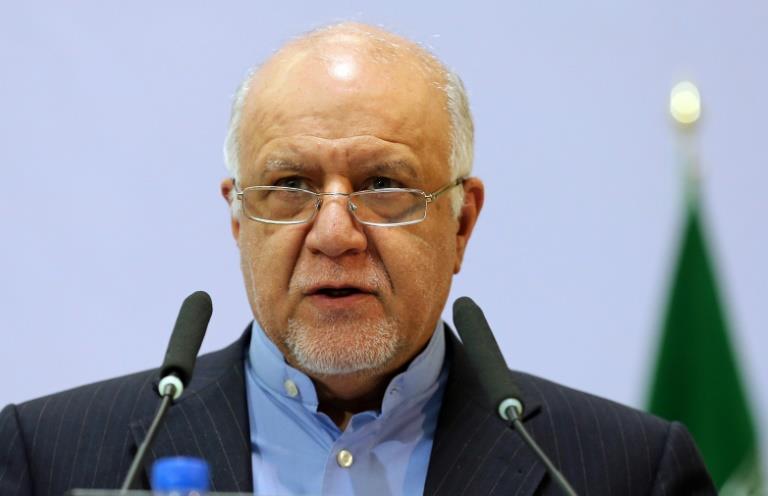
Iran says oil production freeze would prolong sanctions
Iran has been pumping more crude since sanctions were lifted on January 16 under its nuclear deal with major powers, aiming to regain market share lost in recent years but adding to a global glut.
Oil prices rebounded last week on hopes that major producers -- including the largest two, Russia and Saudi Arabia -- would agree at a weekend meeting in Doha to freeze output at January levels.
Prices plunged early Monday soon after news that the long-awaited meeting in Doha had collapsed with no decision taken, but they recovered in volatile trading on Tuesday.
OPEC cartel member Iran did not send a representative to the Doha meeting and Oil Minister Bijan Zanganeh's comments underlined why Tehran sees no justification for changing its stance.
"Accepting a production freeze in practice amounts to a voluntary acceptance of sanctions by our country after years of effort to have them lifted," state television quoted Zanganeh as saying.
"A freeze by Iran at January 2016 production levels would mean that sanctions are not lifted and Iran's exports would be stabilised at the sanctions level."
Sanctions were lifted in return for curbs on the Islamic republic's nuclear programme, which saw the OPEC cartel-member return to world oil markets and increase exports to around two million barrels per day, up from just over one million bpd previously.
Zanganeh, without naming any states, blamed other producers for the oversupply.
"Some countries imagine that after the lifting of sanctions they can create an atmosphere among oil producers to distract public opinion from the fact they have caused the market instability.
"Iran has had no role in destabilising the oil market and those who were responsible for this instability and the saturation of the market are now trying to escape from it," he said.
Zanganeh, however, endorsed the talks in Qatar as "a start for cooperation among non-member and OPEC countries for returning stability to the oil market".

Legal Disclaimer:
MENAFN provides the
information “as is” without warranty of any kind. We do not accept
any responsibility or liability for the accuracy, content, images,
videos, licenses, completeness, legality, or reliability of the information
contained in this article. If you have any complaints or copyright
issues related to this article, kindly contact the provider above.


















Comments
No comment